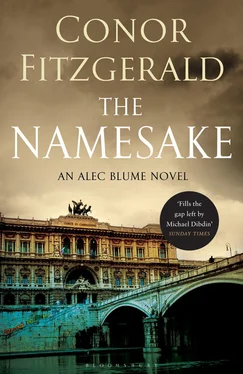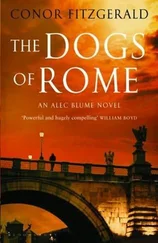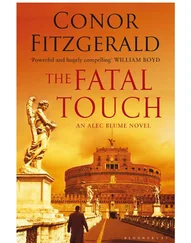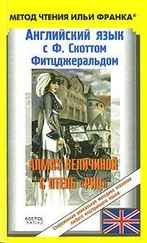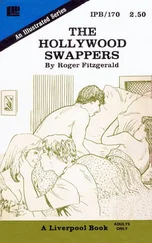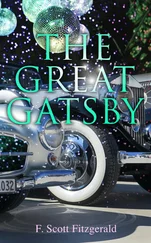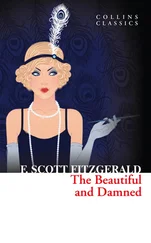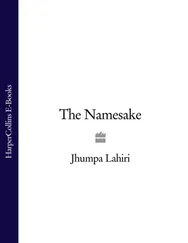Conor Fitzgerald - The Namesake
Здесь есть возможность читать онлайн «Conor Fitzgerald - The Namesake» весь текст электронной книги совершенно бесплатно (целиком полную версию без сокращений). В некоторых случаях можно слушать аудио, скачать через торрент в формате fb2 и присутствует краткое содержание. Жанр: Полицейский детектив, на английском языке. Описание произведения, (предисловие) а так же отзывы посетителей доступны на портале библиотеки ЛибКат.
- Название:The Namesake
- Автор:
- Жанр:
- Год:неизвестен
- ISBN:нет данных
- Рейтинг книги:3 / 5. Голосов: 1
-
Избранное:Добавить в избранное
- Отзывы:
-
Ваша оценка:
- 60
- 1
- 2
- 3
- 4
- 5
The Namesake: краткое содержание, описание и аннотация
Предлагаем к чтению аннотацию, описание, краткое содержание или предисловие (зависит от того, что написал сам автор книги «The Namesake»). Если вы не нашли необходимую информацию о книге — напишите в комментариях, мы постараемся отыскать её.
The Namesake — читать онлайн бесплатно полную книгу (весь текст) целиком
Ниже представлен текст книги, разбитый по страницам. Система сохранения места последней прочитанной страницы, позволяет с удобством читать онлайн бесплатно книгу «The Namesake», без необходимости каждый раз заново искать на чём Вы остановились. Поставьте закладку, и сможете в любой момент перейти на страницу, на которой закончили чтение.
Интервал:
Закладка:
But once again, Konrad had misread the situation.
45
Gerace-Locri, Calabria
It was years since Blume had been in this part of the country. After an initial section of squalor in the form of a prefabricated shopping centre and a clutch of apartment buildings cluttered with balconies, which resembled makeshift spectator stands erected to observe the spectacle of cars passing by, the road narrowed and straightened and darkened, as sturdy metal fences and tall olive trees appeared on either side. Sometimes, where a new olive grove with younger trees had been planted in the red earth, the light would intensify and the vista open, but then the tall trees and fences returned to reiterate the relentlessly linear plan. It was like driving up the longest ever avenue to a stately home, an impression intensified by the absence of any traffic coming in the opposite direction. Occasionally, he caught glimpses of parked or discarded small boxy Fiats so old they still had number plates with ‘RC’, the abbreviation for Reggio Calabria, marked out in pale orange, a system he wished the country had never abandoned, since it was always interesting and sometimes useful to know from which province the fool in the car in front of you hailed. In some of the groves, the bare earth was already overlaid with dark green nets, ready to catch the olives that would be combed off in a few months by African immigrants or shaken off by vibrating mechanical bars attached to tractors.
The olive oil from here was among his favourite things in the world. He preferred the bitter and complex tones of Calabrian oil to the mellow, fruity Tuscan varieties that Japanese tourists came all the way from Tokyo to taste. No Japanese tourists came down here.
After half an hour, the road started turning and climbing. The repetitive but soothing pale grey and silver of the olive groves gave way to a dark composition of greens and yellows. Blume rolled down the window to get the scent of the pine trees, whose cones and needles lay baking on the bumpy asphalt, sometimes causing the wheels to lose grip. Similar to olive trees, but taller and more sober, holm oaks stood behind thickets of juniper and birch, a tree he had always associated with the cool north. Yet here it was, perfectly at home. Hazels, hornbeams and green alder, all heavy, sturdy and oppressive plants linked by chains of ivy, fought for dominance, then fell back as the road continued to climb. Just when he thought he had seen the last of the taller trees, the road dipped downwards and suddenly he found himself driving through a forest of ancient beeches whose rippled leaves fended off the sun so well that the air was damp and mushroom-scented.
As the trees finally began to give way to the increasing altitude and the bushes turned into shrubs, he was able, thanks also to the added height of the car he was driving, to see how insidious the steep banks on the roadside were. Now that he was nearing upper reaches of the range, the vistas he had glimpsed through the side window lay in front of him. Dozens of mountaintops, the shape of upturned egg boxes or cloche hats, lay before him, their slopes sudden, steep and gleaming. His father had once taught him that painters used lighter colours for the background, darker for the foreground, but the hills before him seemed to increase the depth of their green as they stretched northwards, while the one he was driving across was sand-coloured and dominated by yellow flowers and scratching woody plants.
It would be difficult to paint this landscape without seeming to idealize it, he thought, but the solution to that particular problem of representation soon presented itself in the form of a sudden hamlet made up of a scattering of brutal cement houses, most of them missing a top storey but all equipped with satellite dishes. They were fronted by messy gardens containing stubby Indian figs, discarded plastic bottles of motor oil and rotting cars. The larger houses had McMansion gates, and all the smaller houses had yellow and brown aluminium-framed windows and doors.
These people do not deserve their environment, thought Blume. With Naples, one could always hope for Vesuvius, but here… three cars came racing around the corner so close together they might have been linked by a chain. Suddenly, as if they had been waiting for a secret command, vehicles appeared behind him and in front of him. The empty road was suddenly busy. He checked the time. Four o’clock. The Ionian sea lay before him; the town of Locri, a modern excrescence of the Norman citadel of Gerace, which he had just driven through without stopping, was visible in the distance.
The escarpments on either side of the road were shallower now, but he still would not want to find himself skidding down one. How had Konrad fared with his big camper van? Two oncoming cars flashed their lights at him. What were they doing? Challenging him to move over, closer to the edge of the road, to hog the middle less? Or were they defying the authority of the state, mocking him in his police car? A policeman alone in a marked vehicle was rare anywhere in the country, down here it may never have been seen. He glanced in his rear mirror and saw the car behind him flash its light. Just friends greeting each other. He was being paranoiac.
He reached a ribbon of breeze-block buildings that, he supposed, represented the outskirts of Locri. A car passed in the opposite direction without flashing its lights, the driver not even looking at him. Blume checked the wing mirror to see if anyone was behind. Nothing. He eased back in his seat, pressed gently on the accelerator when suddenly a shape shot out from the side of the road and hurled itself in front of him. The object had come at lightning speed from the bushes on to the road, but now seemed magnetized and immobile as it stood there, teeth bared, eyes flashing, and Blume was already spinning the wheel. It was only as his foot reached the brake pedal that the word ‘dog’ formed itself in his conscious mind, but he was already spinning furiously in the opposite direction to avoid a patch of small trees.
He managed to bring the car to a halt, then got out, and looked back down the road. He had not felt any impact, but if he had hit the beast, an ugly thing it had been, then it would be finished off by the traffic behind. But he saw no one swerve or slow down, heard no pitiful yelps or sickening crunch.
The vehicles he was watching slowed down as they passed, as if Blume were an interesting crash. Within three minutes, the oncoming traffic, as well as the cars behind him, had slowed to a crawl, and Blume realized that with his police-marked SUV on the side of the road, he had inadvertently set up a one-man checkpoint. He started waving the traffic past.
Finally, a green Mercedes estate car slowed down and the driver, a woman with piercing blue eyes and long silky hair that looked all the better for being dyed blonde, spoke to him.
‘ Ma ’cca sei ’mbarru.’
‘What?’
‘You’re in the way and you’re in the wrong place. Go on for about a kilometre, first left, third right. That’s where it is.’
‘Where what is?’ But she had driven on, waving an elegant hand, made languorous by the weight of golden bracelets.
Blume climbed back into his Range Rover, drove it to the side of the road, and called Caterina.
‘Where are you?’ she said without so much as a greeting.
‘Locri. At last.’
‘Have you gone to Maria Itria?’
‘No. I haven’t even got to the town proper yet.’
‘Then you’re right next to where she lives. You came in by Highway 111, right?’
‘Yes,’ said Blume.
‘Follow it down to Via Garibaldi, then on to the Provincial Road, first house after a Sidis food mart, number 45. On Google Street View it has a red gate. That may have changed.’
Читать дальшеИнтервал:
Закладка:
Похожие книги на «The Namesake»
Представляем Вашему вниманию похожие книги на «The Namesake» списком для выбора. Мы отобрали схожую по названию и смыслу литературу в надежде предоставить читателям больше вариантов отыскать новые, интересные, ещё непрочитанные произведения.
Обсуждение, отзывы о книге «The Namesake» и просто собственные мнения читателей. Оставьте ваши комментарии, напишите, что Вы думаете о произведении, его смысле или главных героях. Укажите что конкретно понравилось, а что нет, и почему Вы так считаете.
